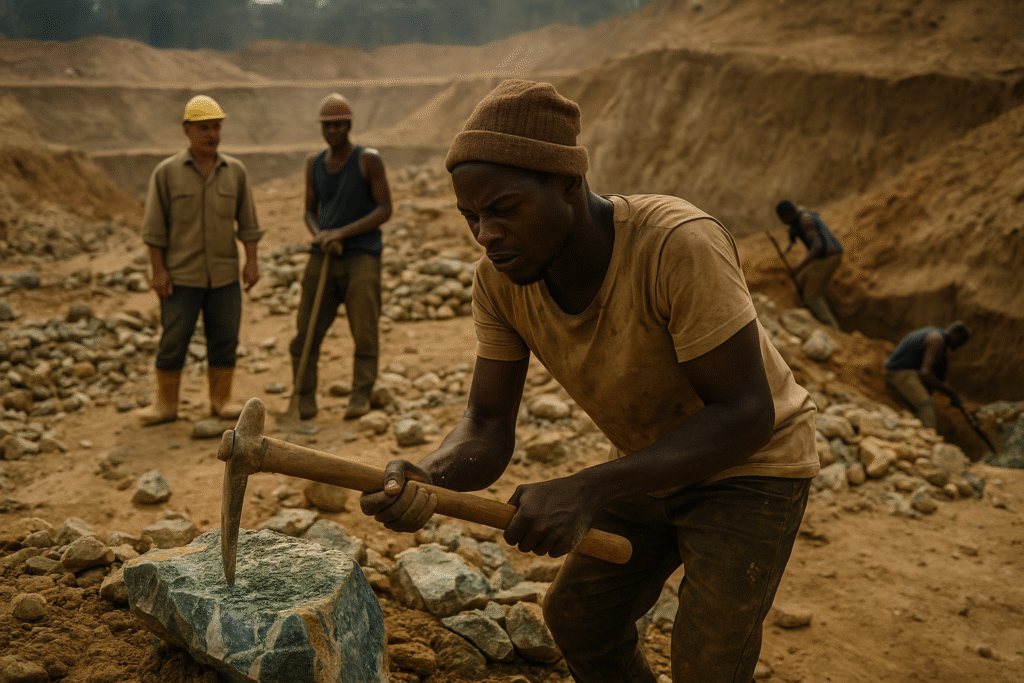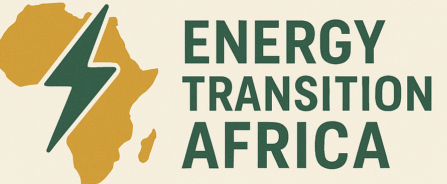Africa's New Scramble: The High Cost of Critical Minerals Without Justice

I once stood at a dusty roadside in Kolwezi, in the heart of the Democratic Republic of Congo’s copper and cobalt belt, watching young boys haul sacks of ore barely larger than themselves. Their bare hands and plastic sandals were their only gear. They should have been in school. But here, they were feeding the global battery supply chain.
And that was 2018.
Today, in 2025, not much has changed. If anything, demand for Africa’s critical minerals has only grown, with cobalt, lithium, manganese, and graphite now fueling the clean energy revolution. The irony? As the world scrambles to decarbonise, Africa risks becoming its green sacrifice zone.
A Continent Rich in Minerals, Poor in Power
Africa holds vast deposits of the world’s most sought-after minerals:
- The DRC produces over 70% of the world’s cobalt.
- Zimbabwe, Namibia, and Ghana are sitting on rich lithium veins.
- Mozambique and Madagascar are emerging leaders in graphite exports.
Yet the wealth beneath African soil is seldom matched by wealth above it. Over 90% of these minerals are exported unprocessed, with little to no local value addition. (AfDB Report)
As our blog “Fossil Fuel Freedom: Why Nigeria Must Ditch Oil to Secure Its Future” argued, true sovereignty in energy begins with control over resources—not just extracting them, but shaping their destiny.
The Return of the Resource Curse?
The race for critical minerals is reviving colonial-era dynamics. While tech giants and car manufacturers in the Global North pledge green supply chains, they still rely heavily on African minerals extracted under questionable conditions.
1. Child Labor in Cobalt Mines
According to Amnesty International, over 40,000 children work in DRC’s informal mines, many in hazardous conditions.
2. Environmental Devastation
Mining in Zambia’s Copperbelt and Madagascar’s graphite zones has led to water contamination, deforestation, and the displacement of local farmers, most with minimal consultation.
3. Opaque Contracts & Displacement
Chinese and Western companies often negotiate directly with governments, bypassing communities. In Zimbabwe, villagers have been evicted to make way for lithium mines with little or no compensation. (Human Rights Watch)
It’s the same script, repackaged in green.
Neocolonialism in the Name of Net-Zero?
Western governments have begun issuing their own Critical Mineral Acts to secure African supply chains. The EU’s Critical Raw Materials Act and the U.S. Inflation Reduction Act offer financing and incentives, but rarely commit to processing or refining in Africa.
Instead, raw minerals are extracted in Africa, shipped to China or Europe for processing, and re-imported as batteries or components. It’s a global value chain where Africa provides the core, but reaps crumbs.
What Ethical Mining Should Actually Mean
Ethical mining in Africa must go beyond ESG buzzwords. It must deliver:
- Local value addition: Refine and process minerals on African soil.
- Free, Prior and Informed Consent (FPIC): Communities must be consulted and compensated.
- Binding environmental and labour standards: Not optional CSR slogans.
- Revenue transparency: Citizens should know how much mining companies pay, and where that money goes.
And critically, regional bargaining power. African countries negotiating separately lose leverage. But collectively, through the African Union’s forthcoming Green Minerals Strategy, they can demand better deals.
Read more: “Green Goals, Grey Areas: The Politics of China–Africa Energy Relations”
Who’s Leading the Call for Change?
Civil society networks like PWYP, are pushing back. They are demanding contract transparency, community-led monitoring, and fairer tax regimes.
Some governments are beginning to act. Namibia and Zimbabwe have imposed export bans on raw lithium. Indonesia’s nickel model, where raw ore exports were halted to force local refining, offers a blueprint Africa can study.
But progress is slow. And time is short.
Final Word: Africa Cannot Afford Another Decade of Extractivism
This energy transition could be our liberation, or our latest loss. Africa has the leverage, the resources, and the people. What we need now is political courage, and a united front.
We must reject a future where our minerals power the world, but leave our communities powerless.
We must insist that ethical mining in Africa means just that: mining that builds wealth, safeguards rights, and strengthens sovereignty.
Because a truly just energy transition cannot leave Africa behind, or buried under its own riches.
Expert Analysis, Directly to You
Join our community of experts and decision-makers. Stay informed with our weekly deep dives into Africa's energy future.
Weekly briefing. Expert insights.
No spam. No generic fluff.
About the author
energytransitionafricaContributor at Energy Transition Africa, focusing on the future of energy across the continent.
